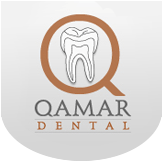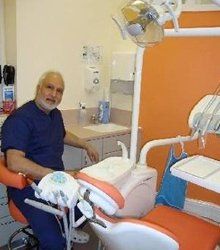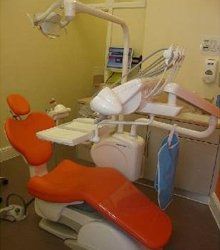Contact us
Get in touch with Qamar Dental Practice today for further information about our NHS treatments.
Email:
Telephone:
0121 556 1609
07930816257
Qamar Dental Practice,
Winchester House,
122 - 123 Walsall Street,
Wednesbury,
West Midlands
WS10 9BY
NHS dental charges
What can I have under the NHS?
- Band 1 - £19.70 – Examination, advice, diagnosis, x-rays, preventive advice, diet advice, applying sealants or fluoride application, a scale and polish and planning further treatment
- Band 2 - £53.70 – everything in Band 1, PLUS fillings, extractions, tooth canal treatment, adding to your denture such as a clasp or tooth
- Band 3 - £223.70 – everything in the above bands, PLUS more complex treatment involving laboratory procedures, i.e. crowns and dentures
NHS Exemption to add Universal Credit after Valid Tax Credit certificate
Urgent treatment has the same NHS charge as Band 1. This charge includes assessment and advice, x-rays, dressing, re-cement crown, ease denture and carry out up to two extractions or one filling.
Urgent treatment is purely to get the patient out of pain.
For the latest information about NHS Dental Charges click here.
How do I know if I am exempt from paying any NHS dental charges?
You do not have to pay if when you started your treatment you are:
- Under 18 years old
- Aged 18 years and in full time education
- Pregnant or you’ve had a baby within the 12 months before your treatment started
You may also get free NHS dental treatment if when you started or when asked to pay you get:
- Income Support
- Income-based Job Seekers Allowance
- Income Related Employment Support Allowance
- Pension Credit Guarantee Credit
- Valid Tax Credit certificate or name on a valid HC2 or HC3 certificate
For more information on exemption click here.
NHS payment
You may be asked to pay for the full or part payment towards your treatment at the start of the treatment or during the treatment.
We take the following payments cash, Visa and MasterCard.
Complaints
We aim to make your experience at the practice as pleasurable as possible. However if you should have any complaints, please talk to our Practice Manager who will be able to deal with your complaints and talk you through our compliant procedure.
If you are still not happy with the outcome you can write to:
NHS England
PO BOX 16738
Redditch
B97 9PT
Email:
england.contactus@nhs.net
Booking an appointment
Our friendly staff is at hand to guide you through the process. Simply come in or call us and we will take down your details.
We have male and female dentists at the practice and if you express a preference about which dentist you would like to see, we will make all reasonable efforts to ensure that the request is met.
We DO NOT charge for a missed appointment but if you continue to miss appointments we may decide not to offer you treatment.
If you have to cancel an appointment we request you give us 24 hours' notice. This allows us to offer your appointment to other patients.
We have a fully accessible Ground Floor Surgery for the disabled, wheelchair users and those who can't manage the stairs.
Advice & support
Smoking
Smoking can affect your health and increase your chances of smoking related diseases. This will give you bad breath, staining of your teeth and in some cases cause mouth cancer.
Giving up smoking isn’t easy and we have clinics all round us to help. Ask your dentist for more advice and how to stop smoking. If you want more information visit the NHS Stop Smoking Service by clicking here.
Alcohol
Your dentist will ask you how much you drink during your examination appointment, while updating your medical history. The units will be recorded with your clinic notes and you will be given advice on how to stop drinking.
The dentist or the oral health educator will explain some alcohol related disease. If you would like more information about cutting down or stopping altogether then click here.
Fluoride
Fluoride is found naturally in water in different areas within the UK, depending on where you live.
Fluoride benefits in reducing the risk of tooth decay, and this is why it is added to toothpaste and also to water in some areas within the UK.
Your dentist or a trained dental nurse, who has carried out the training in applying fluoride, will carry out this procedure. This is a simple procedure where they apply fluoride to the tooth surface to prevent tooth decay.
The gel comes in a brown or clear colour, but the most common one that is used is brown in colour.
Fluoride is applied to all age groups from 6 years onwards.
Antibiotics
Your dentist will check if you are allergic to any antibiotics before prescribing them to you. Sometime you may not know that you are allergic to a specific type until you have taken them. Inform your dentist straight away if you have side effects or you develop an allergic reaction. This could be a reddish rash to your skin or an upset stomach. Immediately stop taken them and inform your dentist. Outside working hours and in emergency situations, contact A&E for advice.
Antibiotics can react with other medication you are taking, for example the oral contraceptive pill. It is important that you read the information leaflet that comes with the medication carefully.
0121 556 1609
07930 816 257
07930 816 257
Qamar Dental Practice, Winchester House,
122 - 123 Walsall Street, Wednesbury,
West Midlands WS10 9BY
122 - 123 Walsall Street, Wednesbury,
West Midlands WS10 9BY




